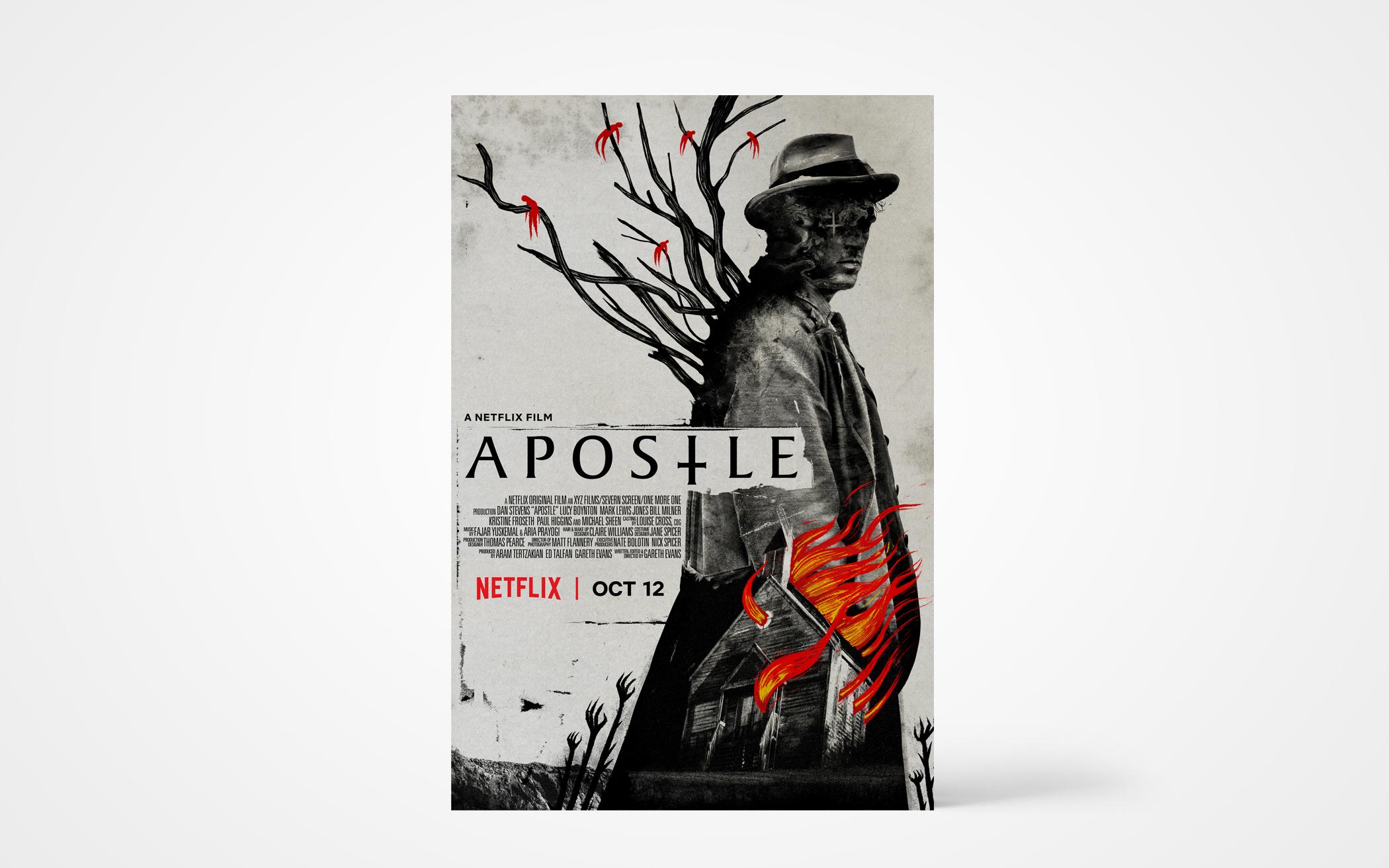Fear—a response that does not need to be learned. It’s an innate response to the unknown or something we feel we cannot overcome. Ultimately, fear is at the very essence of horror movies. Fear is not always relegated to tangible objects or things that might be able to actually harm us. In fact, more often than not, fear comes from hypotheticals or ideas that we cannot truly comprehend. A truly entertaining horror movie is able to find a nice balance of both tangible and intangible manifestations of fear. Apostle, the Netflix original horror movie starring Dan Stevens, Martin Sheen, and Lucy Boynton, and directed by Gareth Evans, features a rather enjoyable, if at times messy and confused, amalgamation of these two types of fear.
In Apostle, a group of people break away from modern society in order to create their own, supposedly unflawed, way of life—only for the reality of cult life to expose the darker side of people.
Apostle is definitely in line with what we have generally come to accept from a movie about a cult, though it does manage to have a bit more going on. Instead of blasting viewers with an excess of horrific violence and gore, there is also rumination and introspective thought about different ideas having to do with society and religion.
The film follows Thomas Richardson (Dan Stevens) in 1905 as he travels to a Welsh island that is home to the bizarre cult that has kidnapped his sister and asked for a ransom in exchange for her safe return home to her wealthy family. The leader, known as prophet Malcolm (Martin Sheen), and his two co-leaders, were escaped convicts who washed up on the island and found it along with the strange deity that called the island home. Prophet Malcolm and his co-leaders are obviously disillusioned by the established government of their homeland as they blame their previous incarceration on forces outside of their control and the actual government itself. The theme of the previously wronged members of a flawed society trying to create something new and, in their eyes, something better, is compelling. Their disgruntlement leads to them creating the cult and imprisoning the strange entity on the island to serve their needs. This inevitably shows the consequences of when we take advantage of the good grace of a higher power, or in a believer’s case, God.
We also discover that Thomas was actually a Christian missionary many years ago, bringing the word of God to Peking, China. Sadly the endeavor resulted in the death of his companions and the torture of his mortal shell, thus Thomas becoming disillusioned with his faith. He questions why God would allow such a fate to befall him. I will not reveal whether Thomas regains his faith, but the film does show him ascending to a higher purpose.
This film is bleak, dark and sad in its depiction of society and religion, but Thomas losing his faith and trying to find justification from God is intriguing. I wish there had been more depth and nuance to this storyline. However, while many of the characters and themes are never quite fully realized, this subplot does help to elevate this film above the gore-filled horror film it otherwise would have been. (Rated TV-MA for Violence and Gore, Profanity and some sexual content.) (Netflix)
About the Author
Patrick Haywood loves to tell tales and create worlds. After receiving an Honorable Medical Discharge from the U.S. Army, Patrick now studies writing in Big Rapids, Mich., where he works on his writing, his faith, and himself.

